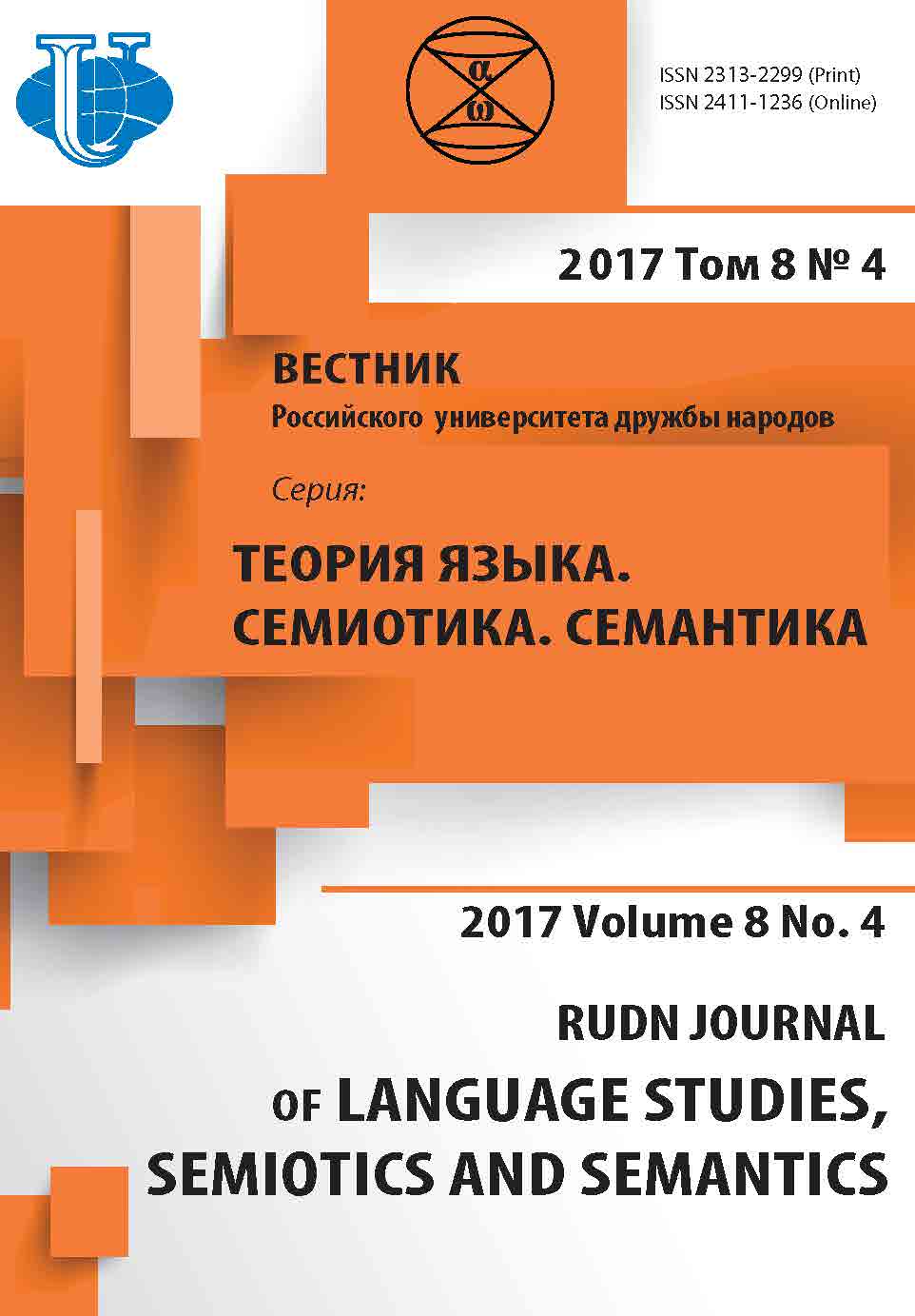DICTIONARIES OF TOTALITARIAN ITALY AND ALBANIA
- Authors: Kosteva V.M1
-
Affiliations:
- Pushkin State Russian Language Institute
- Issue: Vol 8, No 4 (2017)
- Pages: 884-891
- Section: ARTICLES
- URL: https://journals.rudn.ru/semiotics-semantics/article/view/17966
- DOI: https://doi.org/10.22363/2313-2299-2017-8-4-884-891
- ID: 17966
Cite item
Full Text
Abstract
The relevance of the article is defined by the primary appeal to a comparative analysis of the development of lexicography in countries with a totalitarian society. The analyzed material is con-sidered from the point of view of the “totalitarian” linguistics, which is considered as a set of discursive practices inherent to the totalitarian era. The aim of the present article is the confirmation of the hypothesis put forward by the author, that the totalitarian state, regardless of the time frames, generates a special kind of linguistics, which has a set of certain features making it totalitarian type according to the current political semantics. The subject of the study is the lexicographic works of the totalitarian era in Italy and Albania. The research material of this article was the original lexicographic sources from Italy and Albania, as well as scientific works in the field of lexicography devoted to the period of totalitarianism, mainly represented by foreign linguists. The research is conducted in line with the narrative lexicography, which allows to recreate an objective picture of the status and development of linguistics in totalitarian states, which contributes to the rethinking of the linguistic heritage of totalitarian states, and opens further per-spectives in the field of narrative lingvo historigraphy. The obtained results are characterized by a high degree of novelty. It is the first time when the lexicographical practice of totalitarian states is presented as a comparative analysis of the discursive practices of the totalitarian era. Previously, the study of the lexicography of totalitarian states was implemented on the basis of studying specific aspects of the vocabu-lary and was presented fragmentarily, mostly in foreign languages, which significantly limits the access to the works for Russian-speaking readers. The results of this analysis contribute to a General theory of lexicography and lingvo historigraphy of the twentieth century.
About the authors
Viktoria M Kosteva
Pushkin State Russian Language Institute
Author for correspondence.
Email: vmkosteva@gmail.com
Kosteva Viktoria Mikhailovna, candidate of philological Sciences, assistance professor, External Affairs Advisor to the Rector in Pushkin State Russian Language Institute; Area of scientific interests: lexicography, phraseography, phraseology, lingvo historiography. The author of over 45 scientific publications.
Ac. Volgin Street, 6 Moscow, Russia 117485References
- Kosteva, V.M. (2013). “Totalitarian” linguistics and its manifestation in linguistic politics: Monography. Moscow: MPGU. (In Russ.)
- Kochi, R.D. & Skendy, D.I. (1950). A short Albanian-Russian dictionary. M.: State Publishing House of Foreign and National Dictionaries.
- Lyafa, E. (2001). Development of the book vocabulary of the Albanian language in the second half of the 20th century // Studia linguistica et balcanica: In memory of Agni Vasilyevna Desnitskaya. SPb.: Nauka. pp. 346—352. (In Russ.)
- Bert oni, G. (1941). Vocabolario della lingua italiana Edited by Giulio Bertoni, assisted by Carlo Formichi and Clemente Merlo. Milano: Soc. An. per la Pubblic. del Vocabolario Lingua It. (In Ital.)
- Cipo, К. (1954). Fjalor i gjuhes shqipe. Tiranë: Institut i shkëncavet. (in Albanian)
- Duro, A. (1999). Italienische Lexikographie In Wörterbücher: ein internationales Handbuch der Lexikographie / (Hrsg.) F.-J. Hausman. Berlin–NY: de Gruyter. Vol. 2. pp. 1880—1891. (In German )
- Klein , G. (1986). La politica linguistica del fascismo. Bologna: Il mulino. (In Ital.)
- Kolb, S. (1990). Sprachpolitik unter dem italienischen Faschismus. Der Wortschatz des Faschismus und seine Darstellung in den Wörterbüchern des Ventennio (1922—1943). München: Voegel. (In German ).
- Panzini, А. (1935). Dizionario moderno. Supplemento ai Dizionari italiani. Milano: Ulrico Hoep li Editore. (In Ital.)
Supplementary files












